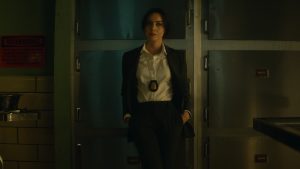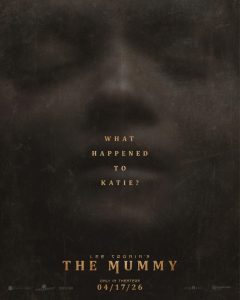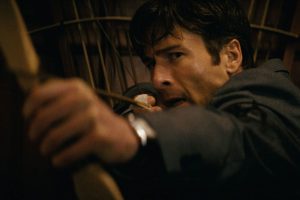
When Spanish documentarian Patricia Franquesa‘s laptop was stolen in Madrid in 2019, her biggest immediate concern was the cost of a replacement. When a blackmailer began threatening to send her nudes to everyone on her contact list, however, her perspective on the nature of technology radically changed. My Sextortion Diary, the hour-long documentary that arose from Franquesa‘s harrowing experience with digital blackmail, is a queasily absorbing look at the uncanny and mundane ways technology shapes our daily lives.
A Hacker’s POV
The film is slightly unusual in structure, operating as a loose, quasi-installation piece, a mystery, and as a literal collection of evidence in an ongoing police investigation. Through the use of vlog-style vertical video, text conversations, zooms, and screen-recordings, the film’s digital-collage style subtly imposes a voyeuristic perspective on the viewer that is eerily effective: a hacker’s POV. Watching Franquesa make eggs in her kitchen or talk to the police in her bedroom, presented in a low-resolution frame-within-a-black-frame seemingly shot on photobooth, the overall sensation is of spying through her laptop camera. “How much can you see??????” she types into a blank word document after months of harassment by the unknown hacker. The answer is painfully unclear.
source: Gadea Films
For Franquesa, constructing this documentary around these photos seems to be a process of realignment: Not only does the sextortion reveal the limits of digital law enforcement, it reveals the lack of limits on what constitutes an individual’s digital self. These self-constructions that each of us carefully creates online through our social media posts, our google results, etc., are also supplemented by the “private” digital sphere of our email inboxes, our google docs, and our DMs. Being hacked, receiving those messages from friends that your account is posting strange messages, seemingly of its own accord, reveals the artificiality of this now-essential, modern double as a genuine extension of self. As Franquesa‘s sexual photos are humiliatingly sent to her LinkedIn contacts, boundaries between different “parts” of the internet (“public” and “private”) are crossed, retroactively revealing the thinness of the borders of code between them, transversable with a simple password.
Digital Vagina
Franquesa‘s film takes the vagina as a metaphor for this strange digital doubling. The folder where she keeps screenshots of the hacker’s emails, related texts with friends, police records, and court documents is labeled “digital vagina.” Where before she understood her “digital vagina” to be a literal digital double for her sexual self, composed of the three nude photographs stored on her computer, this folder, alongside the fact of the hack itself, scrambles this direct analog relationship. Now, her “digital vagina” is a diffuse bricolage of records, files generated by the impact of photos which now, out of their original context, carry monetary, political, professional, and legal weight.
source: Gadea Films
The film deliberately confuses the personal and professional “sides” of the internet with its diaristic mode to meditate on this point: Texts appear on screen: Her friend asks what she’s up to, Franquesa replies she’s “smoking her brains out.” “This is a documentary!” the friend replies, highlighting the carefully groomed nature of documentary form which traditionally posits the filmmaker as a “professional” and, in so doing, inscribes decorous limits on what should be visible. Voyeuristically watching Franquesa comb through her “digital vagina” folder in a screen recording emphasizes this same permeability again, before instagram-style videos of her beautiful sunny apartment resituate the viewer in the performative mode that is the “appropriate” way to view her online.
Conclusion
In recording the quotidian experiences that surround the hacking (visiting her grandmother, taking a bath, going clubbing), as well as the process by which her digital avatar is violated (the emails, security footage, links to bitcoin accounts), Franquesa elegantly reinscribes control over her “digital vagina.” By collapsing the boundaries that necessitate its sequestration, she defuses the shame at the heart of any blackmail scheme. The film that results from the experience is messy, actively resisting the neat structures she attempts to impose on it, but therein lies its central point of interest. Franquesa has created a film that encapsulates the uncanny feeling of picking up a phone you think is yours, only to find it’s someone else’s. Don’t forget to update your passwords.
Does content like this matter to you?
Become a Member and support film journalism. Unlock access to all of Film Inquiry`s great articles. Join a community of like-minded readers who are passionate about cinema – get access to our private members Network, give back to independent filmmakers, and more.












